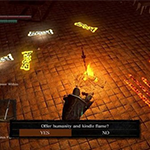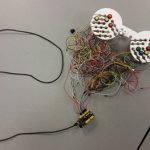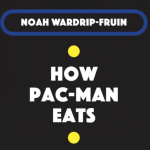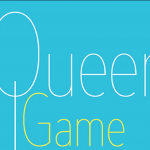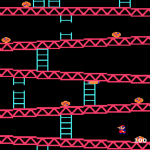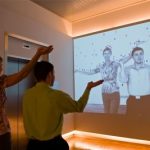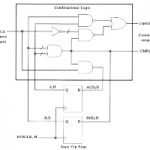2025
Austin Anderson applies a videogame formalism methodology to Dark Souls and argues that the game's various ludic-textual structures challenge player expectations, encouraging them to engage with the game's multiplayer systems and explore fan-made paratextual materials. By defining the player's movement between these structures as an act of hyperlinking which creates a networked community, Anderson identifies these as key characteristics of what he calls the 'networked hyperlinked videogame'.
This time around on the Off Center podcast, Scott Rettberg is joined by Kristine Jørgensen, professor of media studies and PI at the Center for Digital Narrative. They discuss male gaming culture and transgressive games, her involvement in the Games and Transgressive Aesthetics project, and as her ongoing project Understanding Male Gamers.
Scott Rettberg talks to Patrick Jagoda—University of Chicago professor and cofounder of both the Game Changer Chicago Design Lab and the Transmedia Story Lab—about transmedia storytelling, alternate reality games, the differences in narrative design for video games and ARGs, and the role ARGs can have in a community.
2024
In Off Center Episode 12, Scott Rettberg talks to game designer, academic, and author Doris Rusch about making games with meaning, existentialist psychotherapy, the resurgence of text-based games online, and embodiment: "Let’s talk about Zombie Yoga."
2022
Alex Mitchell (leader of the Narrative and Play Research Group at the National University of Singapore) shows how, while generative text adventure AI Dungeon allows players to uncritically interact with the AI system as they co-create a story, Project December instead primes the player for reflection and interpretation. Unlike most digital games, which emphasize immersion, this brings forward the problematic nature of their technology platforms: foregrounding rather than normalizing the strangeness of the experience, or even generating a kind of "spooky magic," as Project December creator Jason Rohrer puts it.
2021
In her essay “Is this a game, or is it real?”, Naomi Mandel revisits WarGames, a 1983 film that significantly shaped the popular imagination of computer games and military networked technology at the time. Mandel argues that the film prompts a non-mimetic reading that emphasizes deeper, infrastructural and operational meanings of the screen. Placing it in the context of the history of computer games, Mandel points out that WarGames anticipates the evolution of the medium by playing with distinctions between real world and game, and questioning whether such distinction matters at all.
This essay explores intersections among queer theory, critical making methodology and inclusive design through a research creation piece that aims to problematize normative video game controller schemes.
2020
What is the connection between how computer games work and what they mean? What do we do with games and what do they do to us? In its exploration of these questions, Stuart Moulthrop sees Noah Wardrip-Fruin’s How Pac-Man Eats (MIT Press, 2020) as helping to urge game studies in a productive new direction: one that critically traces interactions between games and the broader culture in which they're embedded. More specifically, he observes some of the ways Wardrip-Fruin’s work links “technē to social purpose”, and thereby “re-engages questions of value and justice”. This, he contends, is part of what distinguishes this author—"a scientist who is also a socially aware literary writer", as he approvingly puts it—from many of the “anatomists” with whom he founded this developing field.
2018
Addressing a lacuna in games studies, Jason Lajoie makes a case for why a queer games studies is needed, and he shows how these two areas of study are united in Bonnie Ruberg's and Adrienne Shaw's collection.
2017
Though scholars of literature and the arts remain skeptical, Strunk explores some of the ways "videogames are making the transition into being objects worthy of artistic attention."
2014
At the Frankfurt Book Fair, Ed Finn and his team attempted to "write, edit, and publish a book in three days." In this essay, Finn explains the process, outcomes, and future considerations of that collaborative experiment in writing, reading, and publishing in parallel and as performance, in the same room at the same time, as he attempts to answer the question, "What is the future of publishing?"
2012
Just as Walter Benjamin declared that all "great works of literature either dissolve a genre or invent one," Brian Kim Stefans argues that all successful works of electronic literature are sui generis and invent their own genre. There can be a vocabulary for this invention, however, and Stefans sets out “The Holy Grails of Electronic Literature,” “Six Varieties of Crisis,” and the “Surrealist Fortune Cookie.” Through these concepts, he describes the formal challenges, reading experiences, and fundamental textual units of electronic literature.
Stephen Ramsay introduces a short film in which he does a live reading of composer Andrew Sorensen's performance "Strange Places" and provides commentary.
David Shepard heads off the discussion regarding Stephen Ramsay's live reading of Andrew Sorensen's "Strange Places." His initial contribution is followed with posts by Amanda French, Mark Marino, Max Feinstein, Jeremy Douglass, Daren Chapin, John Bell, Jeff Nyoff, Jennifer Lieberman, and Stephen Ramsay, as well as Andrew Sorensen himself.
2011
Reviewing the week's discussion of Programmed Visions, Sarah Zurhellen finds a pleasurable respite that, necessarily, generated as many questions as answers.
In Week 4, Critical Code Studies contributors kept the magic alive as they discussed Wendy Hui Kyong Chun's "On Sourcery and Source Codes," the first chapter of her forthcoming Programmed Visions: Software and Memory. Informed by Chun's psychoanalytic reading and her awareness of the materiality of code work, the conversation deals with fetishism, gender, genetics, and performativity in ways both abstract and tangible.
How do you annotate an experience? Stephanie Boluk and Patrick LeMieux grapple with competing logics of computer code at the intersection of Adventure, nostalgia and new media scholarship.
In Week 3 of a six-part series, Critical Code Studies contributors spelunk the mysteries of Colossal Cave Adventure, a seminal text adventure game. Delving into close readings of the original FORTRAN code, the group plots the twisty passages linking media theory, deconstruction and philosophies of programming.
Caroline Levine argues that Jason Mittell's attempts to classify The Wire by genre results in "some slippery logic, some fruitful and provocative but not altogether persuasive argumentative moves in Mittell's own game." She suggests that examining the show through the lens of form - not genre - clarifies why it warrants comparisons with texts like Bleak House: both works attempt to represent the distinctly networked quality of urban social life.
Can Critical Code Studies overcome the divide between technology workers and technocultural theorists?
